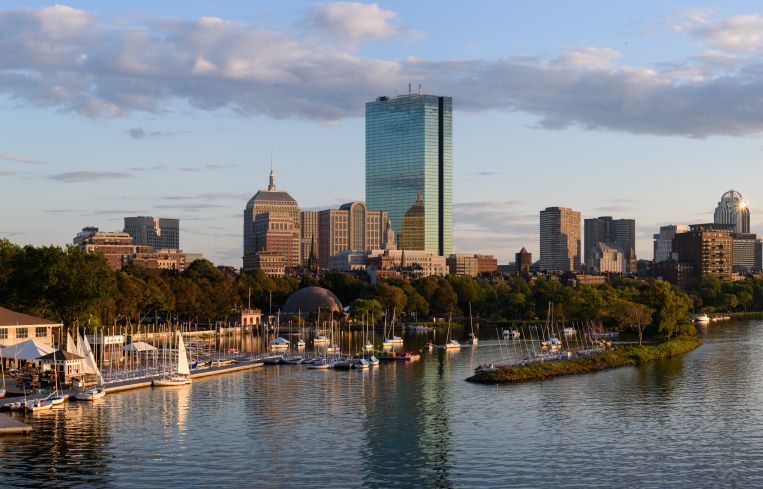Boston Beats Manhattan in Commercial Real Estate Investment: Report
By Celia Young July 2, 2021 2:41 pm
reprints
Boston just beat Manhattan by surpassing the borough in commercial real estate investment — a bragging right for Beantown in the two cities’ historic rivalry.
Boston has ranked as the most liquid commercial property market in the U.S. for the past two quarters, putting Manhattan in second place, according to a report from Real Capital Analytics (RCA).
“Manhattan has been falling, even longer than the last few quarters in terms of total market liquidity,” Jim Costello, a senior vice president at RCA, said.
Boston has a more competitive market, in part because of the strong technology and life sciences sectors. While Manhattan has more unique buyers than Boston, there are fewer active in Manhattan today than in the first quarter of 2020, while Boston has seen its active purchasers slip very little, the report said.
“Just given the size, Manhattan has more unique buyers than Boston does,” said Costello. “But relative to the history for Manhattan, there’s fewer active participants today than you’d see in a normal period, as opposed to Boston.”
The competitive market in Boston is what drives up prices for commercial real estate, Costello said. And that competition is partially inspired by Boston’s high biotechnology and life sciences community.
Life sciences leasing in New York City reached a record high in June, with leasing activity at 257,000 square feet, blowing past 2020’s year-long total of 156,000 square feet, Commercial Observer reported. But, the Big Apple hasn’t yet surpassed Boston in that sector.
Manhattan still reigns supreme in cross-border money though, Costello said. International investors — like pension funds — see the city as an efficient place to store money, given that a fund can unload a large sum on a high-priced property. But, pandemic-inspired uncertainty has also hit New York harder than Beantown, Costello said.
“Boston has that extra kicker of these growth industries in biotech and technology,” Costello said. “Where there still is uncertainty around what happens next, and exactly how people will use office space and how much, the fact you’ve got some other growing industries on top of things in Boston minimizes the post-COVID uncertainty to some degree.”
Costello said he was most surprised by how much Manhattan has fallen in the past year.
“Globally, Manhattan may have seen one of the sharpest pullbacks of liquidity and more so than other big global financial hubs,” he said.



